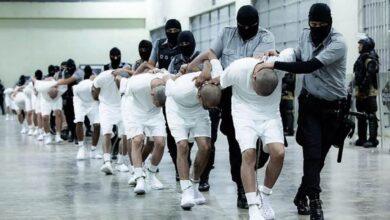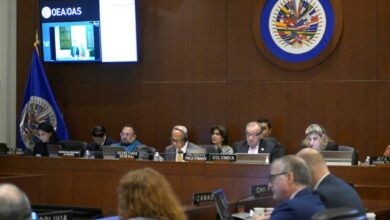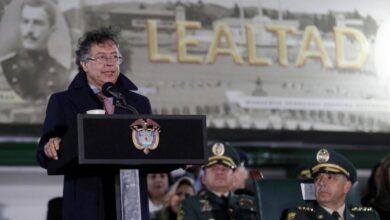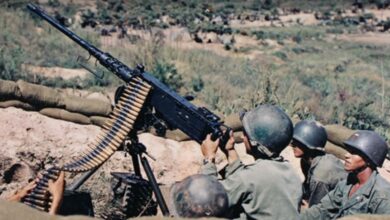Russia: Vladimir Putin and His Rush To Escalate the Conflict
The latest rapprochements with China and the position of the countries allied to Moscow have not helped Vladimir Putin to justify the conflict with Ukraine that began in February of this year.

Photo: Kremlin.ru
LatinAmerican Post | David García Pedraza
Escucha este artículo
Leer en español: Rusia: Vladimir Putin y su apuro por aumentar o terminar el conflicto
Moscow and Kyiv have been marked by the constant tension that has plagued their communities, especially the Ukrainian one due to the constant bombings and the Russian military invasion of their territory, such as in the cities of Mariupol and Kherson in the east of the country. Vladimir Putin, president of the Russian Federation, urged his political allies, especially Belarus, to support this action because he saw that Russia was being surrounded by NATO against a possible annexation of Ukraine to this military organization.
Cultural, national and ethnic clashes have been evident between Russia and Ukraine since the fall of the Soviet Union in 1991, and, although it was seen as a minor conflict, it peaked in 2014 with the accession, without international recognition, of Crimea. This peninsula was Ukrainian territory, but with a majority Russian population that, by referendum, came to call itself part of Russia and that Moscow ratified immediately.
You may also be interested: Women In Iran Threaten the Ayatollah's Regime. The End Of the Islamic Revolution?
These two societies, despite sharing a history together for much of the contemporary world, have not been able to form a good relationship.
Any excuse is valid to start a conflict
The media, as is well known, play an important role in covering events and there are times when contradictions come to light. It is well known that the Russian offensive gained ground in Ukraine, as the Moscow army began the escalation of violence, due to encountering a disoriented military force from Kyiv. However, especially in September 2022, the Ukrainian militias have been recovering part of the territories that were under Russian occupation, such as the east of Kharkov and the city of Izium. It is easy for neither side to recognize that they have been losing several battles, but the information is valuable when taking stock and making key decisions for the future of the conflict, whether to escalate or reduce it.
The truths that diplomacy can manifest
In the international arena, Russia has had very few friendships. The best known has been with the Belarusian government, which has had a great affinity with the Kremlin since the former USSR; it is no surprise that Minsk and Moscow are allies in adversity and in prosperity. Of an economic nature, wanting to be considered world powers, Russia and Türkiye have been great allies, despite the fact that Ankara belongs to NATO, an organization that has earned Putin's suspicion. Finally, the phrase 'the enemy of my enemy is my friend' comes to life in the relationship between Moscow and Beijing, two countries with vast territory and history whose governments are both in conflict with the US.
Of these three allies, only Belarus directly supports Russia's offensive against Ukraine, while Türkiye has asked Moscow to return the occupied territories to Kyiv, since Ankara maintains good relations with both parties and is willing to be a guarantor of an agreement to end the conflict.
In the framework of the 77th United Nations General Assembly, Recep Tayyip Erdogan, president of Türkiye, has said that Vladimir Putin is willing to end the conflict. This call from the Turkish president may have a much more telling implicit message: the Russian militias are indeed more weakened than they appear, or at least, they have been defeated more times than has been reported.
Much has been speculated about the image of Vladimir Putin inside and outside Russia, from his state of health to the percentage of government approval within his country. However, the reality is that, aside from the countries of the former Soviet Union, most governments are against his action in Ukraine. The entire European Union, NATO, and a large part of the Americas, and Africa condemn their actions against the Ukrainian population, whose attacks have been directed mostly at the civilian population.





